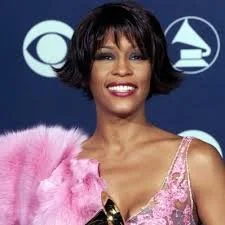Why I Don’t Watch The Grammys
The first time I ever watched the Grammys was in the year of Whitney Houston, 1994. She owned the 90s and I was there to see it, on the television from the living room of my home in Calabar, Cross River State in Nigeria.
I was a preteenager in Secondary School and Whitney Houston, uptil that point, had impacted me immensely. I have stated in an earlier post on this blog, how listening to her ignited my ability to sing. For me, the three Grammys won that year was well-deserved. She won the Album of the year for The Bodyguard Soundtrack; Best Pop Vocal Performance and Record of the Year for her reinterpretation of Dolly Parton’s “I’ll Always Love You”. In my view, Whitney Houston was hugely talented and the Grammys existed to appreciate and recognise talents like hers.
I was so wrong!
In 1996, Mariah Carey, our sister songbird extraordinaire was humiliated at the Grammys. Nominated for six awards, namely: Best R&B Vocal Performance, Best Female Pop Vocal Performance for “Fantasy”, Album of the Year for Daydream; and a collaborative nomination with Boyz II Men for Record of the Year and Best Pop Collaboration with Vocals for “One Sweet Day”, respectively.
Mariah went home empty-handed.
I was shocked to my bones. Mariah’s voice ruled the airwaves that year. I was an early teenager and just beginning to decipher the role of politics in life’s daily engagements and how one could either be made or marred depending on what side of the divide one subscribed to. Rhetorically, I asked myself, if Mariah had won all the accolades for her previous albums - Mariah Carey (1990) which she received 5 nominations and won 2, Emotions (1991) received two nominations and Music Box (1993) received two nominations, what went wrong this time? Daydream was by no means mediocre. Why feature a live performance at the Grammys of her and Boyz II Men, if she was going to be humiliated eventually?
This marked the beginning of my skepticism about the Grammys integrity and few years later, it would reach the breaking point.
It is 2002 and India Arie receives 7 nominations for her debut album Acoustic Soul. She was nominated for The Best New Artist and Acoustic Soul was nominated for the Album of the Year and Best R&B Album, respectively. The song “Video” was nominated for Record of the Year, Song of the Year, Best R&B song and The Best Female R&B Vocal Performance, respectively. Like Carey in 1996, Arie went home empty-handed that evening.
That was the last time I would watch the Grammys.
I came to the conclusion that the Grammys plays a role in the politicization of music and has little or no intent of rewarding talents. The talents who had apparently won in the past were adorable puppets who were rewarded for as long as they stayed complicit. Once they sought artistic autonomy, they were blackballed and marked as undeserving. I came to the conclusion that the raw and earthy talent of dark-skin women like India Arie whose physical looks misalign with westernized standards were deemed inferior. While the Alicia Keys’ look and sound, the one who was pitted against India Arie that night is preferrable.
Interestingly, the moment Arie signalled her disinterest in the Grammys validation of her talent in the song “The Little Things” from Voyage to India (2003) with the line “I dont need no Hollywood”, the Grammys felt attacked and would reward her with two trophies the next year, which I didn’t care to watch anyway.
So, for 23 years I have not watched the Grammys. I feel at this point that talented singers should pursue the goal of creating great music that sparks a connection with their audience. The ability to uplift, inspire and encourage through music ought to be the objective of organic music artistry. This would indelibly engender an emotional connection, audience trust, respect, loyalty, patronage and inevitably preserve artistic relevance.
The ability to touch the audience is its own reward. Audience response is spontaneous and frontal, no in-betweens or third parties needed. That is all that matters, not the Grammys!


